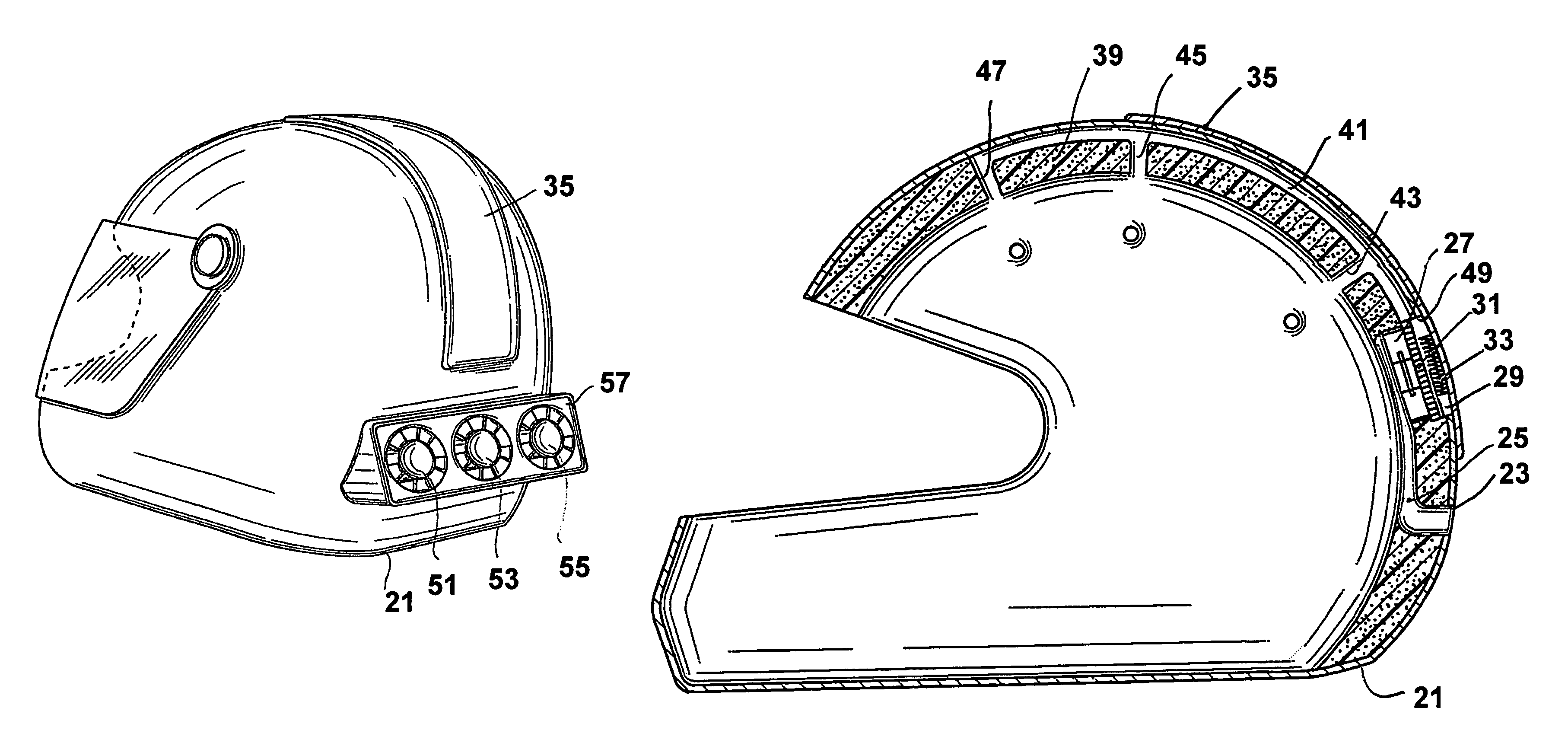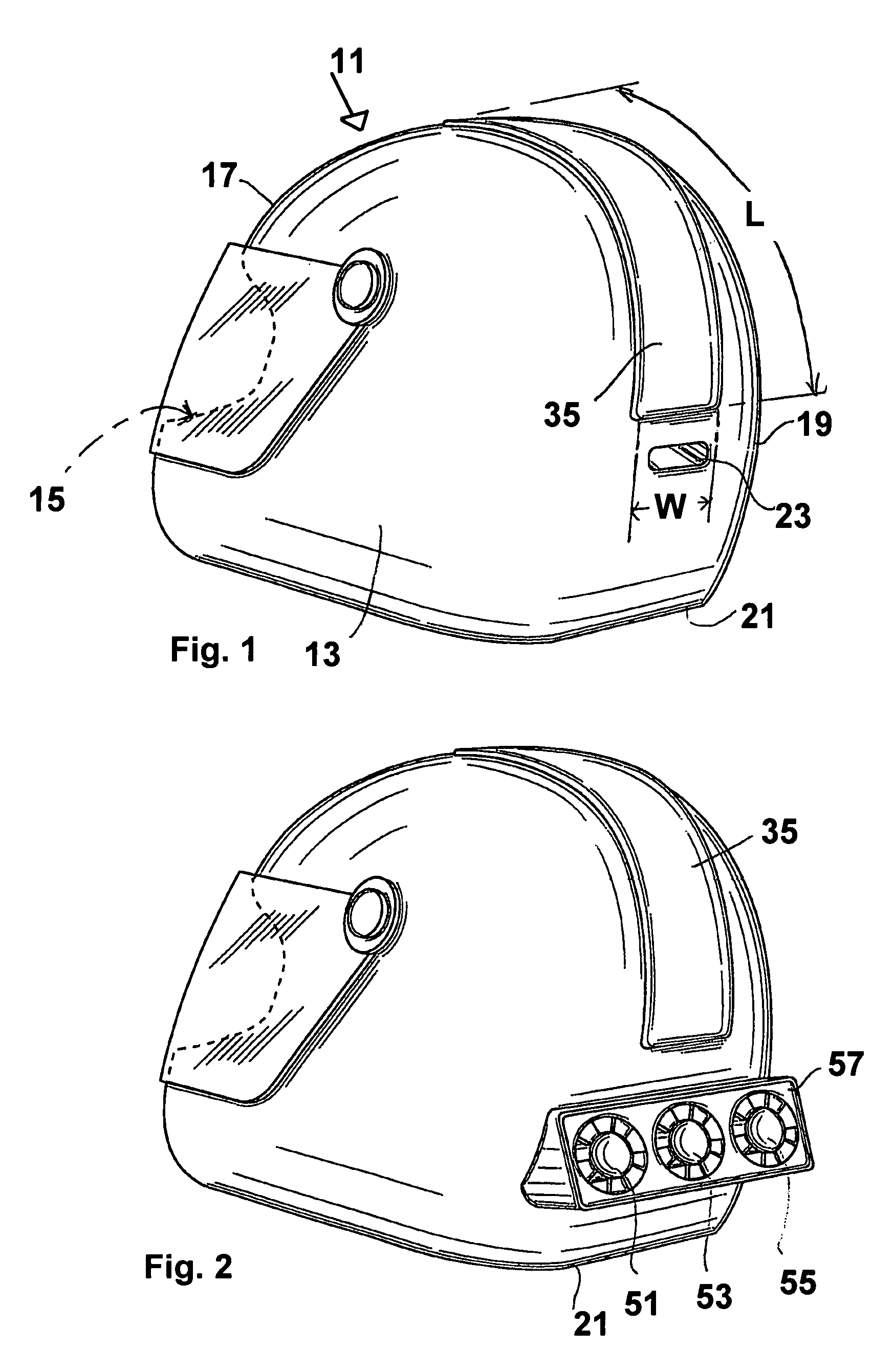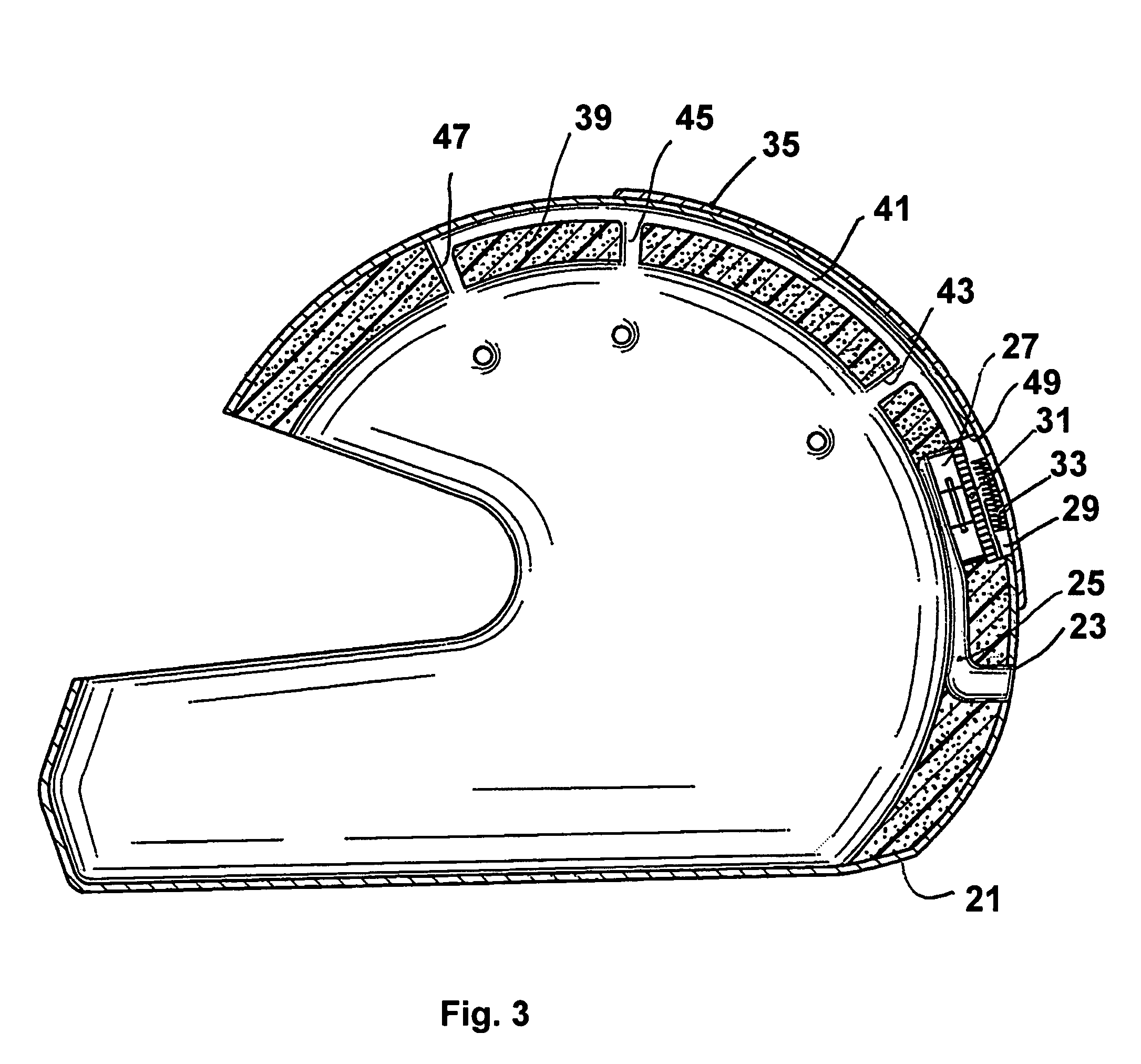Crash helmet with thermoelectric cooling
a technology of thermoelectric modules and helmets, applied in the field of crash helmets, can solve the problems of visor fogging, uncomfortable or even unsafe wearing conditions, and obscure vision, and achieve the effects of improving interior cooling efficiency, improving thermal module arrangement, and improving air flow
- Summary
- Abstract
- Description
- Claims
- Application Information
AI Technical Summary
Benefits of technology
Problems solved by technology
Method used
Image
Examples
Embodiment Construction
[0020]Turning to FIG. 1, there is shown an air conditioned crash helmet 11 of the invention. The helmet 11 is formed from an impact resistant body having an exterior 13, an interior 15 which defines a head receiving cavity, a front region 17 and having a back region 19 which is located adjacent a lower edge 21 of the helmet body. The helmet body can be formed of any convenient material, typically a synthetic plastic or acrylic plastic. One advantage of the present invention is that a stock crash helmet, such as a motorcycle helmet, can be fitted with the air conditioning system of the invention.
[0021]As best seen in FIG. 3, a first opening 23 is formed in the helmet body located at the back region 19 thereof adjacent the lower edge 21. The first opening 23 defines an air intake passage 25 for the intake of external air.
[0022]In the embodiment of the invention shown in FIG. 3, at least one blower fan 27 communicates with the air intake passage 25 for drawing air into the intake passa...
PUM
 Login to View More
Login to View More Abstract
Description
Claims
Application Information
 Login to View More
Login to View More - R&D
- Intellectual Property
- Life Sciences
- Materials
- Tech Scout
- Unparalleled Data Quality
- Higher Quality Content
- 60% Fewer Hallucinations
Browse by: Latest US Patents, China's latest patents, Technical Efficacy Thesaurus, Application Domain, Technology Topic, Popular Technical Reports.
© 2025 PatSnap. All rights reserved.Legal|Privacy policy|Modern Slavery Act Transparency Statement|Sitemap|About US| Contact US: help@patsnap.com



